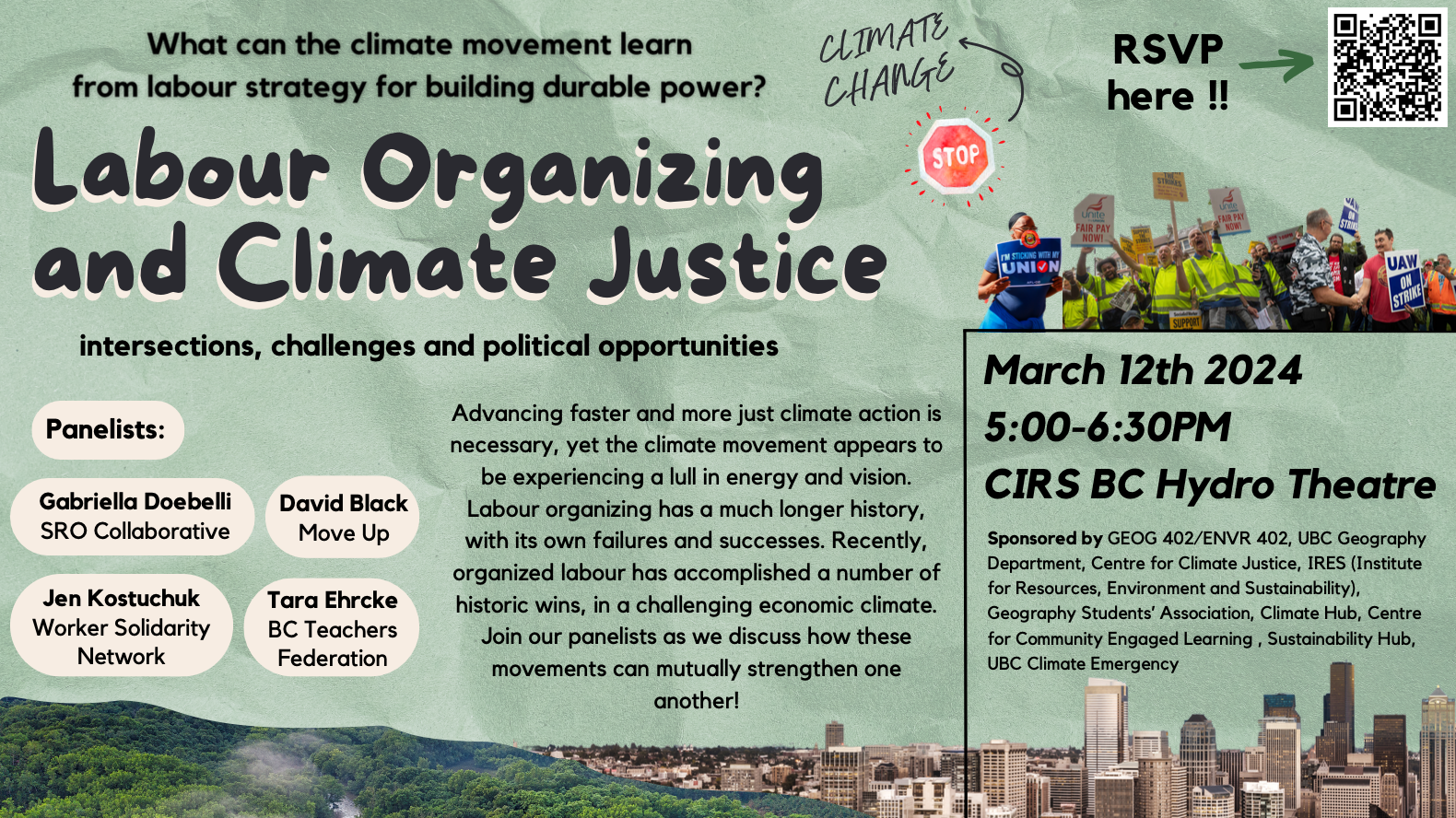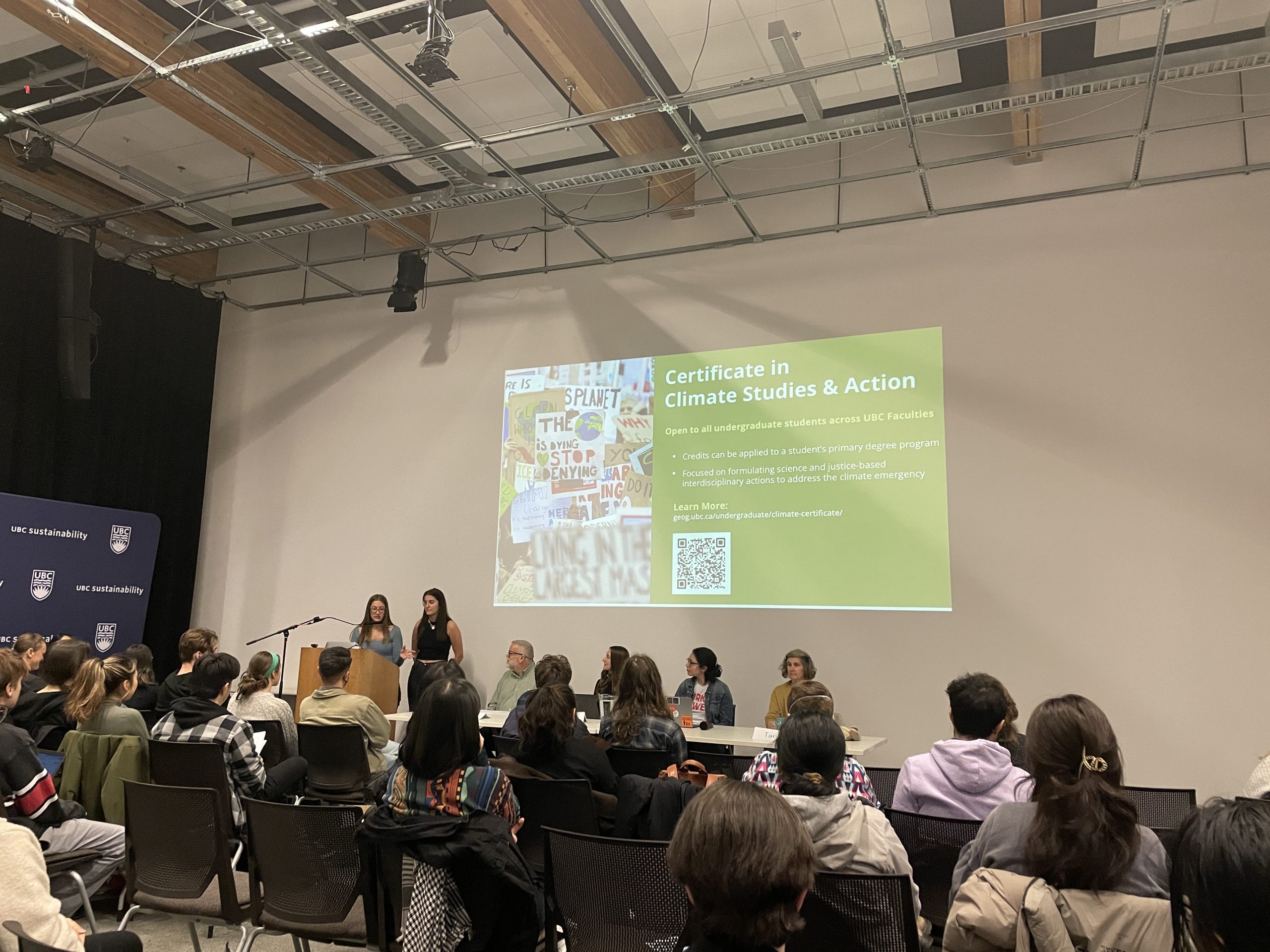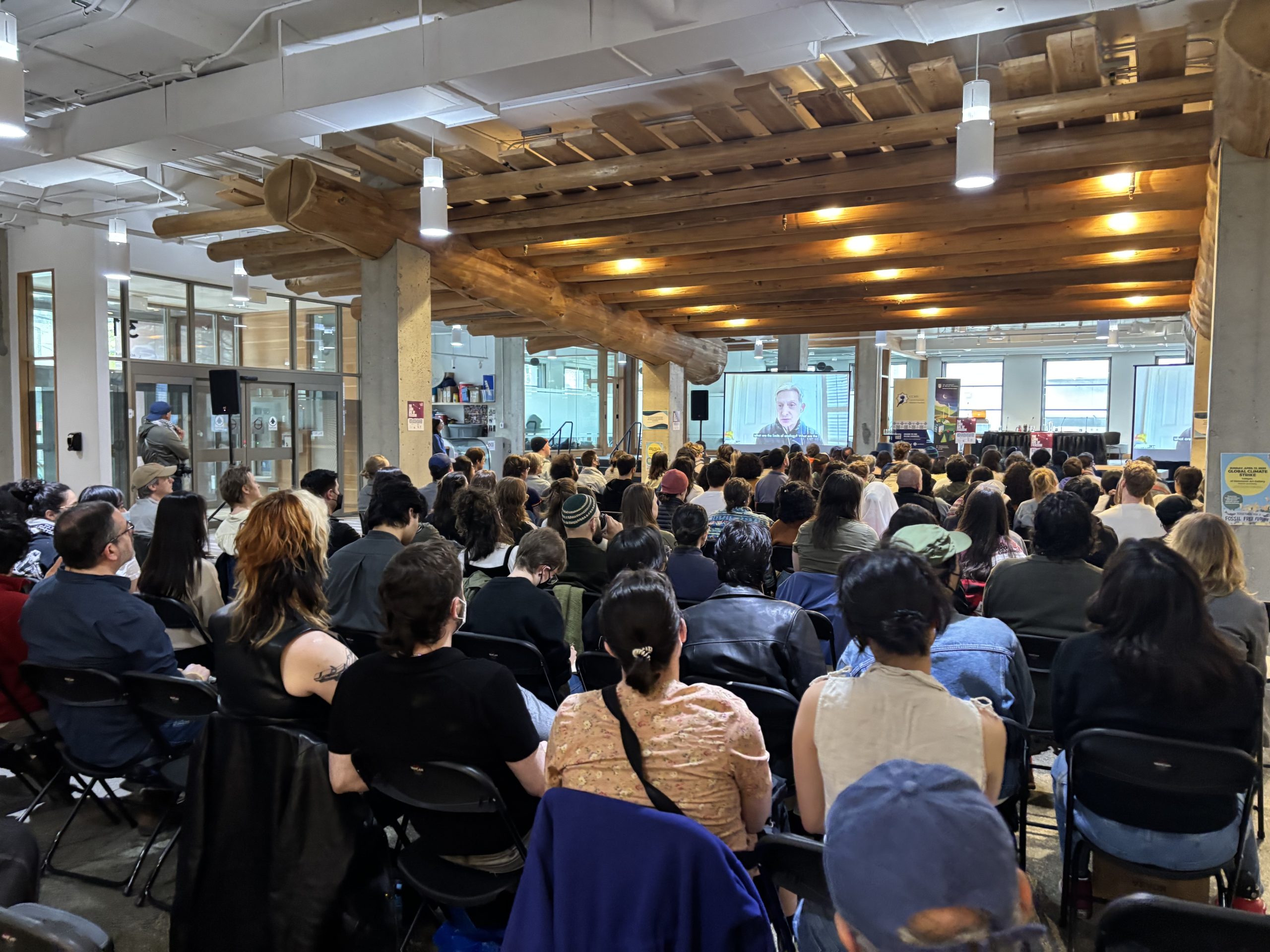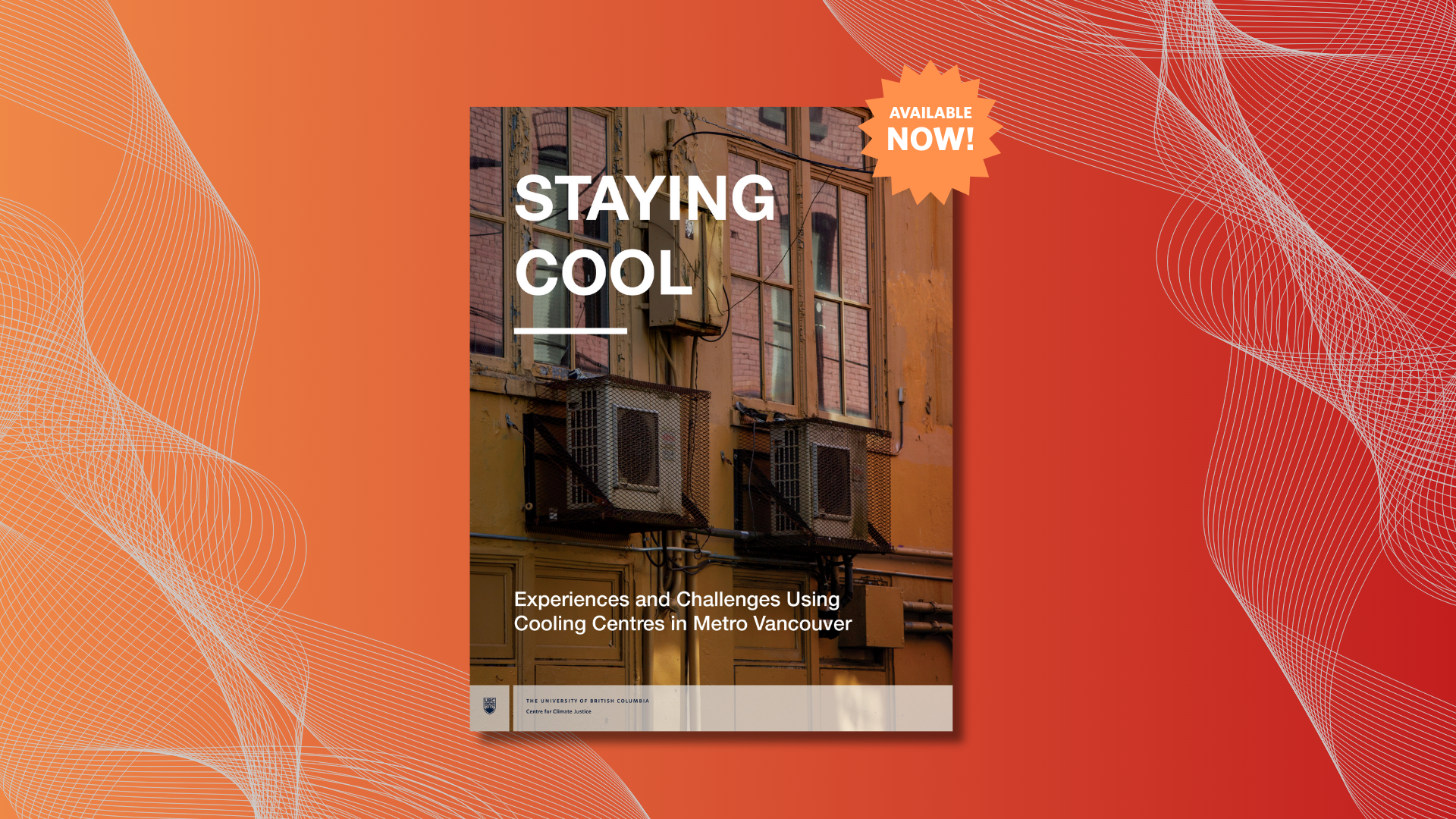




Recently the CCJ co-sponsored a panel discussion with the Certificate for Climate Studies and Action Capstone Program. The panel delved into the urgent imperative for faster and more equitable climate action, presenting critical insights at the nexus of labor organizing and climate justice. Throughout the discussion, the panelists – Gabriella Doebeli, David Black, Jen Kostuchuk, and Tara Ehrcke – highlighted key themes essential for advancing climate justice and labour organizing and emphasized the importance of solidarity and community engagement in effecting positive change, stressing the potency of collective action.
Tara Ehrcke provided an assessment of the climate movement’s current state by noting, “we [the climate movement] are only at the early stages of how we use our power to implement change. We are just at the beginning of thinking about what we want and how we can get it.” David Black built upon this perspective by sharing, “There is a lot that the climate movement can learn from the labour movement. When you need a friend, it’s too late to make a friend. If we stand together with other groups, we’ll be more successful in making positive changes. You’ve got to be there for other people so they’re there for you. It takes a lot of energy and intentionality to cherish the idea that we aren’t just workers, we’re members of the broader communities and the struggles of the communities are our struggles, and vice versa.”
The panel underscored the need to broaden perspectives and integrate climate and labor issues into everyday life, recognizing the interconnectedness of workplace and living conditions. Gabriella Doebeli proposed that “we need to radically expand the way people see climate and labour as part of their lives and merge workplace and living issues. If we keep the labour movement isolated to the workplace, we miss out on all the other things that impact worker’s lives.”
Additionally, the panel discussed the pivotal role of economic empowerment in facilitating advocacy for progressive changes, emphasizing the necessity of providing workers with the tools to effect meaningful transformation. Jen Kostuchuk shared that “it’s not that workers don’t have voices, they do, it’s that the people in power aren’t listening” — arguing that there is true power in unions and in numbers which can also inspire momentum in the climate movement. The trick is mobilizing our collective power. Doebeli echoed this with moral clarity saying, “Be curious and ask questions. You need to know how these folks are being impacted to connect them to the movement and show them why we think they should care.” Kostuchuk seconded this by recognizing that the power of unions can inspire.
Overall, the event provided valuable insights into the intersections of labor organizing and climate justice, inspiring attendees to continue their efforts towards a more just and sustainable future.


Thank you to Gabriella Doebeli, David Black, Jen Kostuchuk, and Tara Ehrcke for sharing your knowledge and stories with us!
A huge thanks to the students of the Certificate for Climate Studies and Action Capstone Program for their roles in bringing this event together for the UBC community!




